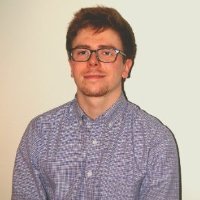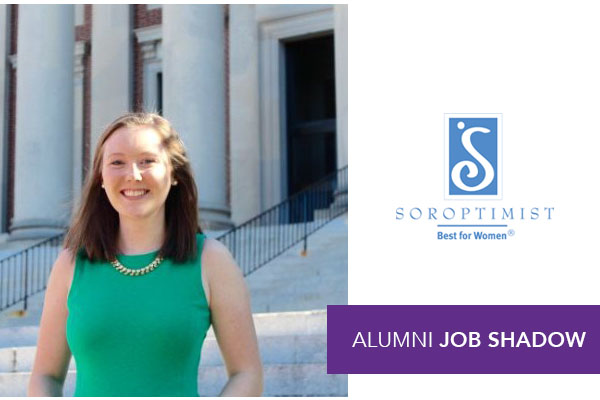 Name: Kyle Hughes
Name: Kyle Hughes
Class Year: 2017 (3/2 program, so technically 2016)
Title: CubeSat Project Lead
Organization Name: Columbia Space Initiative
In one sentence, what does your job entail?
I lead a project team at Columbia that is attempting to build a fully-functioning 1U CubeSat (10x10x10 centimeter nanosatellite) equipped with a payload to (hopefully) calibrate ground-based and sub-orbital millimeter wave polarimeters in low Earth orbit.
What planned and unplanned events connected you to your industry and your first employer after Holy Cross? How did you learn/decide it was a good fit for you?
While at Holy Cross, I was always planning on following through with the 3-2 program with Columbia. Upon entering the engineering school in the fall, I had no idea that an opportunity such as this would have come my way. I have always been passionate about space and aerospace engineering in general; I attribute much of that passion to the concepts I learned while being a physics major at Holy Cross. I did not expect to be responsible for such a project during my first year of engineering school, and it was tough to manage initially. When my team and I received funding from the New York Space Grant/NASA at the end of my first semester, I was both relieved and reassured that this was an endeavor that I want to see through for as long as possible.
What were you involved in when you were on campus?
While at Holy Cross, I was primarily involved with the Center for Career Development and with the Society of Physics Students chapter. In the CCD office, I was lucky enough to be an intern during the academic year from the beginning of my sophomore year until when I left Holy Cross, at the end of my junior year. Working in this office was incredible because I could frequently interact with all the awesome career advisors, along with the students who visited the office. I was also given the opportunity to lead the first iteration of Holy Cross’ SPS chapter in the physics department; this was a great leadership experience because previously, the department didn’t have a formal student group to represent it and do cool physics-related things outside of the classroom.
What was your major and how did it affect your career decisions?
I came to Holy Cross knowing that I wanted to participate in the 3-2 program in engineering with Columbia. I chose physics (as opposed to math or computer science) because I have always been intrigued by the discipline, although it terrified me in high school. The physics department at Holy Cross is super tight-knit and helpful; I always felt comfortable with approaching my professors with (many) questions. This is something that I’m sure applies to every major at Holy Cross, but it’s something that definitely shouldn’t be taken for granted. Now that I’m at a larger, more research-focused university, it’s almost impossible to find face-to-face time with your professors. In hindsight, I am happy that I chose to study physics; my classes in the major at HC truly honed my ability to break down complex, sometimes vague, and exhaustive problems. In turn, I discovered that my passions reside in engineering, specifically regarding innovations in power and computation for spaceflight, space exploration, and aerospace research.
What are one or two skills that you developed at Holy Cross that you use in your work?
Resourcefulness and the ability to communicate well. My time at Holy Cross was key for the development of my ability to solve complex problems, even if I didn’t know where to start. I believe that my transition from Holy Cross to engineering school puts me at an advantage when it comes to excelling in project-focused environments because I’m able to communicate well, both verbally and through writing. That is a resounding perk of studying at a liberal arts school that you may not realize until post-grad experiences.
What advice do you have for students on campus today?
Interact with your professors and involve yourself with your department as much as you can. Holy Cross is truly unique in the sense that the departments are designed to give students the opportunity to extend their learning beyond the classroom (e.g., through office hours, research experiences, etc.). This is especially impactful for STEM majors at Holy Cross because the departments are so small and getting to know the professors could open doors to future opportunities.




 Name: Kyle Hughes
Name: Kyle Hughes